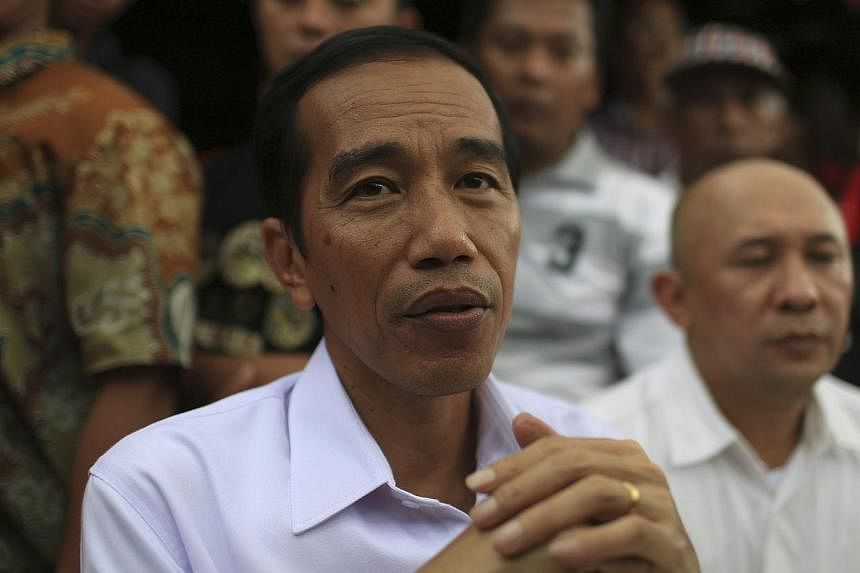JAKARTA (REUTERS) - Indonesian presidential frontrunner Joko "Jokowi" Widodo's plan to slowly reduce fuel subsidies over the next few years is the best option to ease pressure on the budget deficit while keeping inflation in check, economists said.
Whoever succeeds outgoing President Susilo Bambang Yudhoyono in October will need to quickly tackle the problem. The subsidies cost the government around US$20 billion (S$25 billion) a year and are the main factor behind a current account deficit that was more than 2 per cent of gross national product in the first quarter, and a budget deficit that is expected to be as high as 2.5 per cent of GDP this year.
Jokowi, the popular governor of Jakarta, and his main rival, former general Prabowo Subianto, advocate different ways for bringing down costs. Protests over fuel price increases contributed to the downfall of President Suharto in 1998, and presidential candidates are mindful of the political sensitivities as they campaign for the July 9 election. Jokowi has told local media that he would gradually reduce fuel subsidies over a four or five-year period.
Indonesian fuel prices are some of the cheapest in the region, currently priced at 6,500 rupiah (S$0.715) a litre for gasoline and 5,500 for diesel. An annual increase of up to 1,500 rupiah for fuel would be manageable and should help to avoid street protests like in 2005 and 2008, said Sri Adiningsih, economic adviser to Jokowi's Indonesian Democratic-Party of Struggle (PDI-P).
Mr Adiningsih said the money would be better spent on infrastructure projects like roads, ports and trains. Fuel prices were raised by 33 per cent in 2013. But, President Yudhoyono softened the blow by providing a 9-trillion rupiah compensation package to millions of poor families, and the were no major protests against the higher fuel prices. Mr Prabowo, who is running a distant second to Jokowi in opinion polls, is expected to keep fuel prices at current rates but impose measures to ensure subsidies were only used by the poor and lower middle class.
"We will still give our people subsidies, not reduce it,"said Mr Kardaya Warnika, a lawmaker and senior energy adviser for Mr Prabowo's Gerindra Party. "We won't give the subsidy to people who do not need it. For example, foreigners," Mr Warnika said, adding that the subsidy should be for those who make less than 20 million rupiah a month. Under the Gerindra plan, car owners would have to register their car and include their income to obtain the fuel subsidy. Some economists believed Jokowi's plan was the better of the two options for Indonesia.
"The cut in prices is the preferred one," said Dr Santitarn Sathirathai, an economist at Credit Suisse. "Typically, when the price is wrong the quantitative measures have limited use. There tends to be leakages."
Dr Wellian Wiranto, an economist with OCBC Bank, said Jokowi's plan was the "cleanest way" to get rid of subsidies, providing fiscal stability that would benefit the country's bond market. A third option, one the finance ministry is hoping to add to the 2015 budget, is to fix fuel subsidies at a certain amount. That would allow fuel prices to adjust with market prices.

